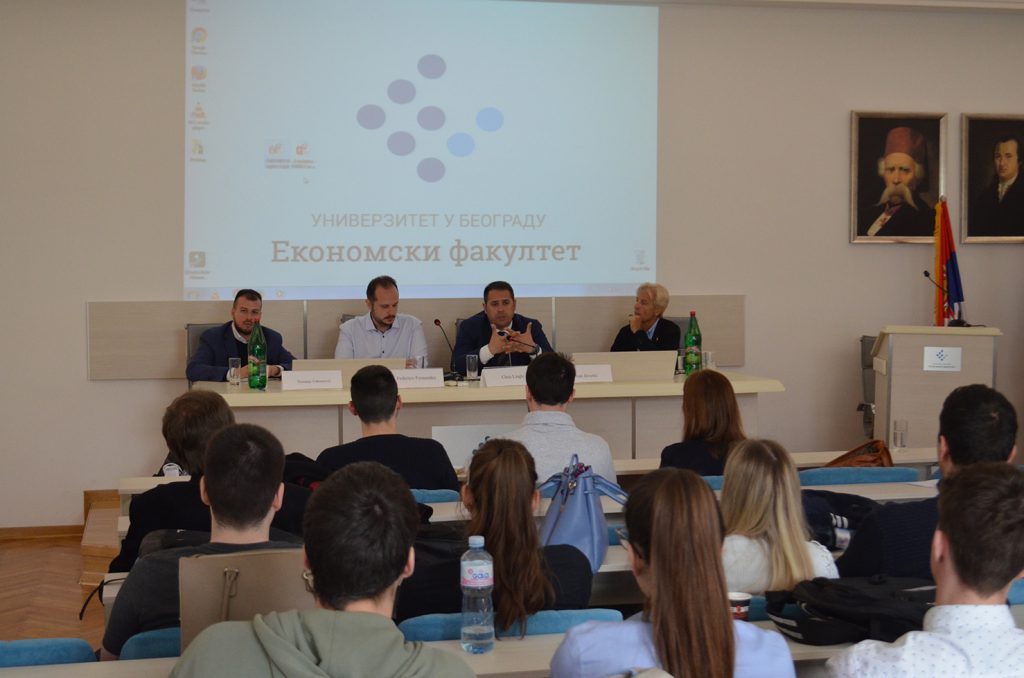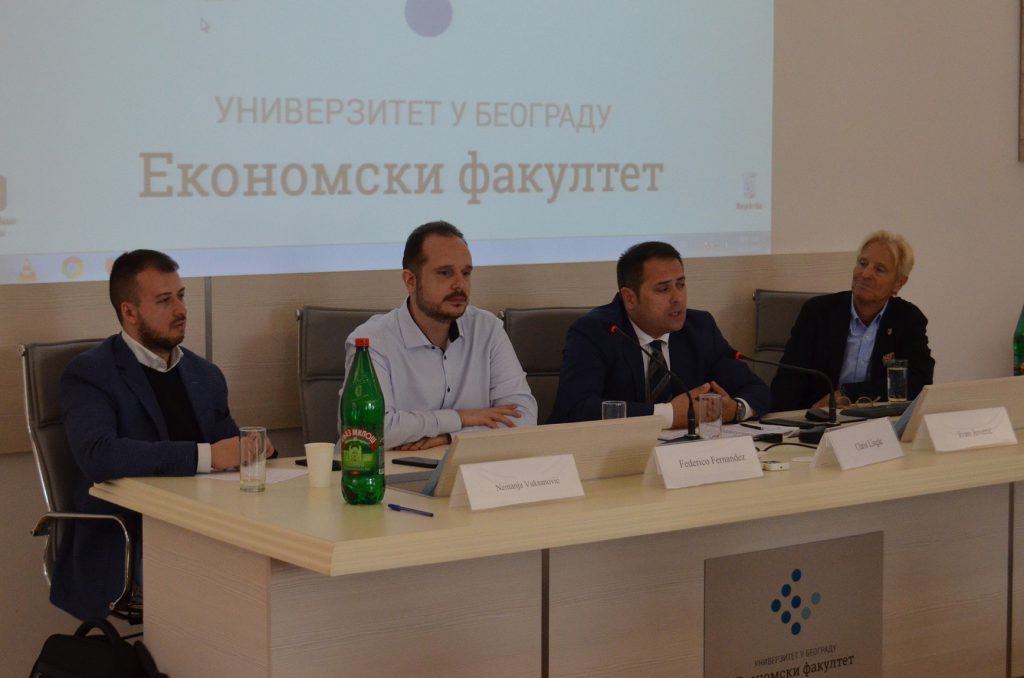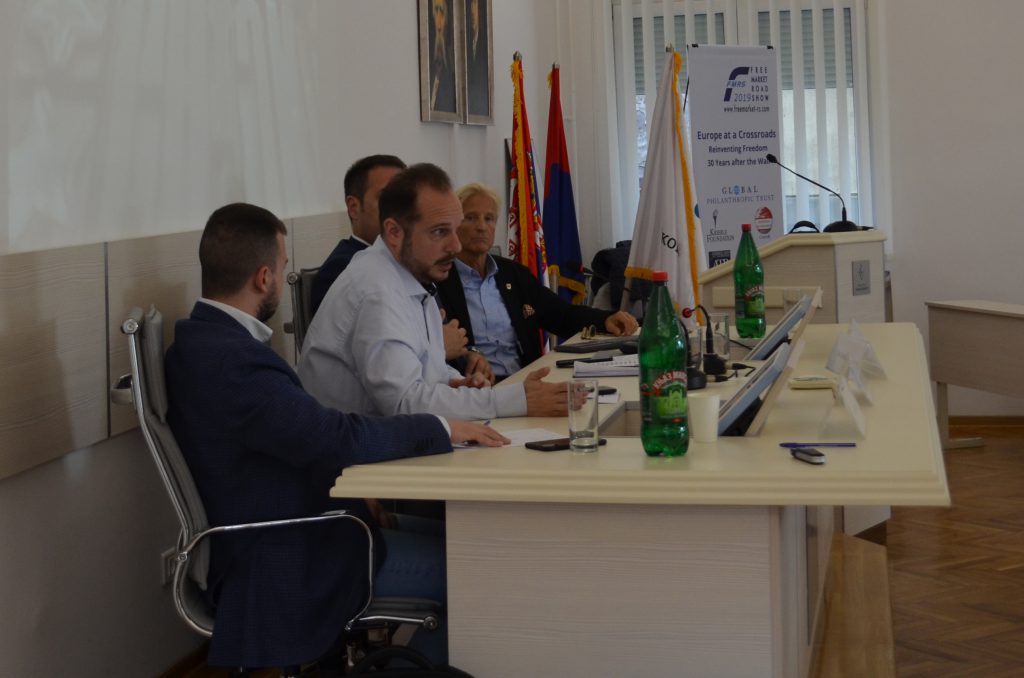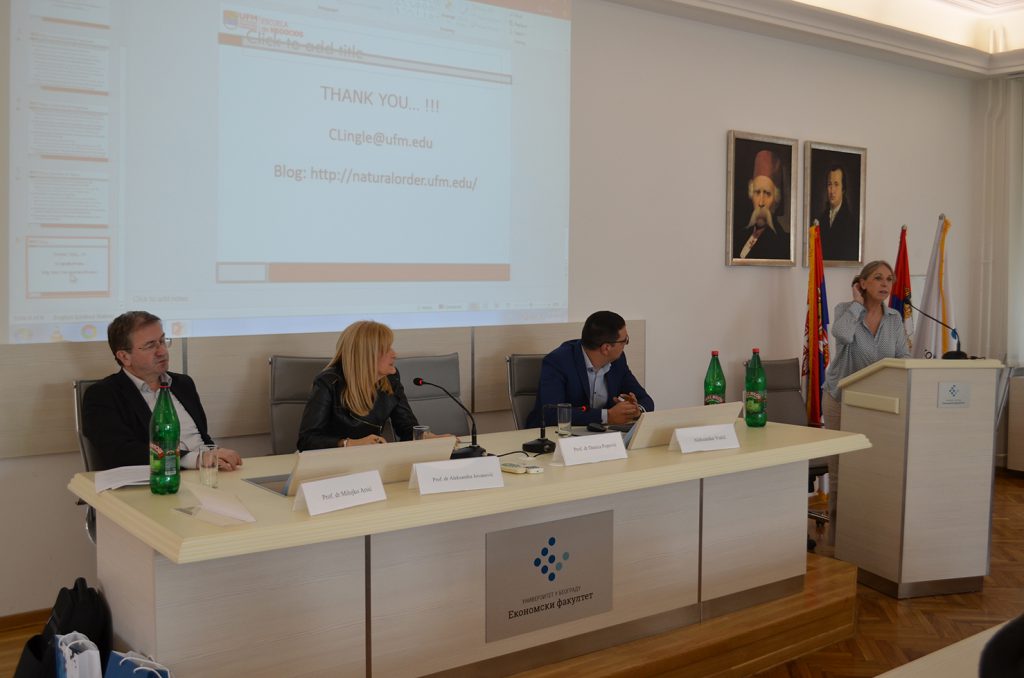
Report: Free Market Road Show in Belgrade 2019
FMRS Belgrade: “Failing universities are waiting to be disrupted”
The Free Market Road Show visited Belgrade on April 10th. The message was loud and clear. Universities are failing systemically and poised to undergo the kind of massive disruption through digital technology that has already upended first print and then broadcast media, and is now burrowing into targets as varied as banking, manufacturing, and hospitality.

Universities have undoubtedly contributed to progress in the past, according to Ivan Jovetic, president of Montenegro’s RCTG broadcast media organization and a professor of business at Montenegro’s University of Donja Gorica. He reminded the audience that “universities liberated Europe from the grip of the Church.” Now, however, “In general they’re stuck, they’re waiting to be disrupted like any other sector.”
Jovetic took particular issue with the high proportion of university graduates who don’t possess any employable skills: “I don’t think universities gave appropriate skills to young people to succeed on the labor market.” Even universities offering supposedly more saleable degrees in areas like business are “hyper-specializing,” according to Jovetic, with classes often mired in backwards-looking case studies. To counter this trend, Jovetic explained that UDG is moving towards a model that encourages students to launch start-ups while they’re still in school: “Universities must create an environment that enables students to start companies… [and] require from each one of us to create jobs.” Acknowledging it might not be a politically correct point of view, Jovetic warned: “Universities must start viewing students as a products, not as clients. If you’re the client you can demand whatever you want. That approach, the student as a client, delivers unemployment.”
In a withering aside Jovetic also took a double dig at universities and politics: “I blame universities for unemployment and for politicians. I don’t know any [politicians] that failed from university. Many of them finished universities. If we don’t have any good politicians, universities must [share the blame].”

These points were echoed by Federico N. Fernandez, a senior fellow with the Austrian Economics Center: “Universities are in many ways failing. It’s difficult to find capable people to work in companies.” On that note he pointed out that many talented individuals never even make it to university, yet are still managing to find high-powered jobs in innovative industries: “There are a lot of talented people who are not going in the traditional channels… In Silicon Valley many companies are not (requiring) university degrees to work there anymore.” Innovators are actively encouraging the trend: “For example Peter Thiel, the technology tycoon, has launched a fund where he invites young people who want to start a startup to skip or postpone university education.”
Fellow panelist Chris Lingle, a professor of economics at Guatemala’s University Francisco Marroquín, went even further: “This is heretical from a professor, but formal education is neither necessary or sufficient for the economic success of an individual or a country.” On the negative side of the ledger he pointed to Cuba, which “has the highest literacy rate in Latin America, but there are no jobs. It’s a propaganda idea that the state must provide [higher] education because education is necessary for economic growth.”
More promising – both in terms of democratizing higher education and breaking the grip of the ideological left on institutions of higher learning – is the spread of online courses, according to Fernandez: “There’s all that talent that we can reach now, and we can reach them via channels that are not traditional, and they don’t have the certain deadweight that traditional channels have. We can do it basically for free.” The implications for widening ideological diversity are especially promising: “Why do classic liberals have think tanks? Because it’s very difficult for us to access the traditional system of education. But that is changing, and it’s changing dramatically.”
The result could be a revolution in education and training practically without precedent in the modern era, although Fernandez acknowledged that the important question of accreditation remains: “What we are about to witness soon is a total change in the way we acquire skills and knowledge. Once we have a way for the market to accredit the knowledge you get online, the change will be complete, and I think it will be a cultural happening comparable to the invention of the printing press.”

After the short coffee break, the fresh set of panelists constituted by Danica Popović, Milojko Arsić, and Aleksandar Vučić, addressed the troubled times Serbia faces today, on the panel which was named Stucked in the Mantra of Neoliberalism. Danica Popović and Milojko Arsić emphasized the lost opportunities for Serbia during the conducted privatization and transition process in general. They laid stress on reforms, which were implemented in Serbia in recent years and effects of these reforms on building free market capacity. Aleksandar Vučić, for the ride-sharing company Cargo, also talked about problems of building free market environment in Serbia. He used the Cargo example in order to explain how state can negatively influence the willingness to develop entrepreneurial ideas.
After each of the panel, a short discussion with an engaged audience took place. Many of the questions focused on problems of young people in Serbia bearing in mind the fact that liberalism ideas did not prevail yet. During a discussion different point of views were expressed about the state of the market freedom in Europe and especially in Serbia nowadays.
The Free Market Road Show is the biggest libertarian event in the world. Follow us on Facebook and on all social media with the hashtag #FMRS19 . Do not forget to check our 2019 tour and subscribe to our newsletter at https://2019.freemarket-rs.com
